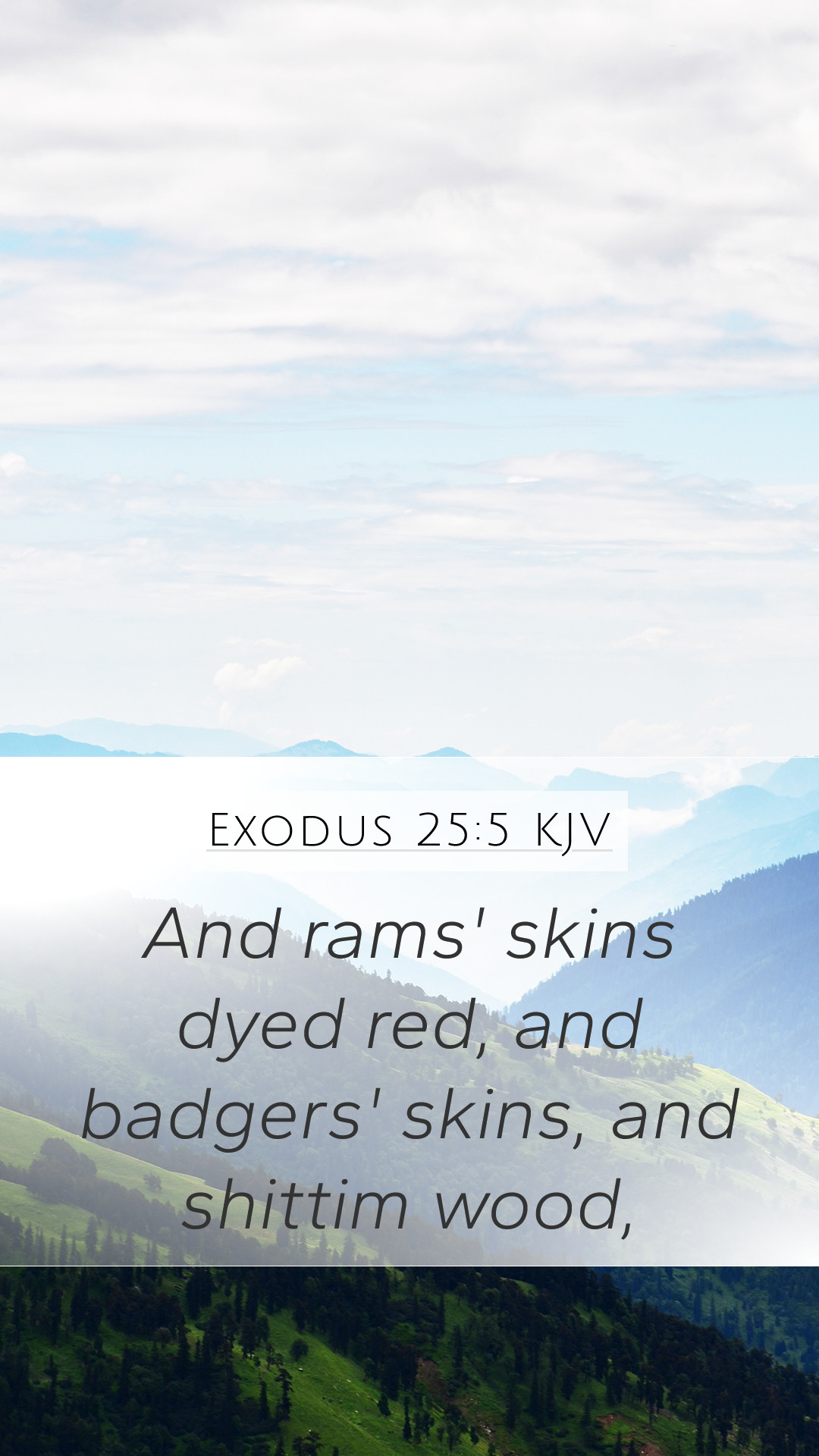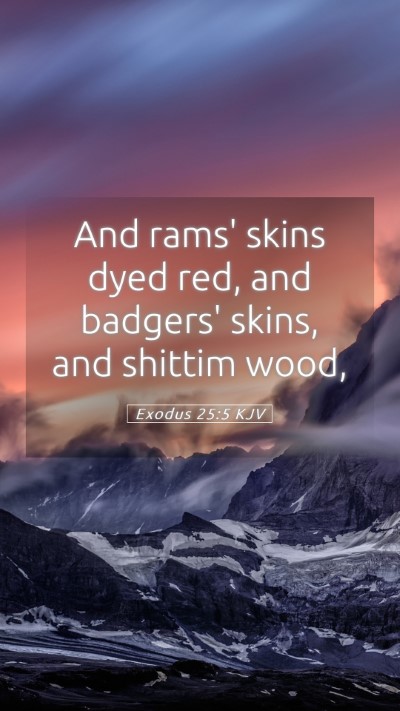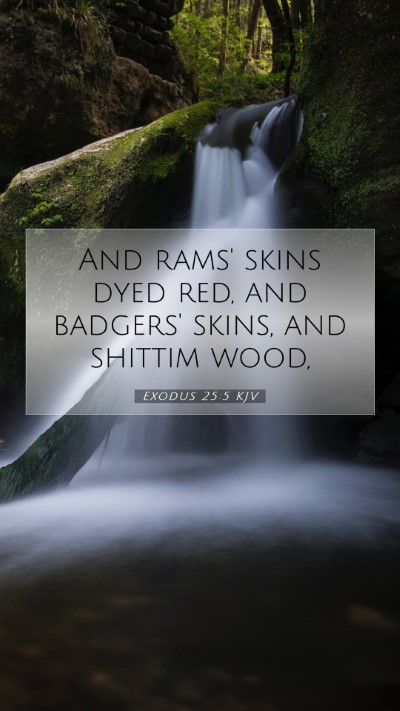Old Testament
Genesis Exodus Leviticus Numbers Deuteronomy Joshua Judges Ruth 1 Samuel 2 Samuel 1 Kings 2 Kings 1 Chronicles 2 Chronicles Ezra Nehemiah Esther Job Psalms Proverbs Ecclesiastes Song of Solomon Isaiah Jeremiah Lamentations Ezekiel Daniel Hosea Joel Amos Obadiah Jonah Micah Nahum Habakkuk Zephaniah Haggai Zechariah MalachiChapter
Exodus 1 Exodus 2 Exodus 3 Exodus 4 Exodus 5 Exodus 6 Exodus 7 Exodus 8 Exodus 9 Exodus 10 Exodus 11 Exodus 12 Exodus 13 Exodus 14 Exodus 15 Exodus 16 Exodus 17 Exodus 18 Exodus 19 Exodus 20 Exodus 21 Exodus 22 Exodus 23 Exodus 24 Exodus 25 Exodus 26 Exodus 27 Exodus 28 Exodus 29 Exodus 30 Exodus 31 Exodus 32 Exodus 33 Exodus 34 Exodus 35 Exodus 36 Exodus 37 Exodus 38 Exodus 39 Exodus 40Verse
Exodus 25:1 Exodus 25:2 Exodus 25:3 Exodus 25:4 Exodus 25:5 Exodus 25:6 Exodus 25:7 Exodus 25:8 Exodus 25:9 Exodus 25:10 Exodus 25:11 Exodus 25:12 Exodus 25:13 Exodus 25:14 Exodus 25:15 Exodus 25:16 Exodus 25:17 Exodus 25:18 Exodus 25:19 Exodus 25:20 Exodus 25:21 Exodus 25:22 Exodus 25:23 Exodus 25:24 Exodus 25:25 Exodus 25:26 Exodus 25:27 Exodus 25:28 Exodus 25:29 Exodus 25:30 Exodus 25:31 Exodus 25:32 Exodus 25:33 Exodus 25:34 Exodus 25:35 Exodus 25:36 Exodus 25:37 Exodus 25:38 Exodus 25:39 Exodus 25:40


Exodus 25:5 - Understanding the Meaning of the Bible Verse
Bible Verse: Exodus 25:5 - "And rams' skins dyed red, and badgers' skins, and shittim wood." (KJV)
The verse Exodus 25:5 describes the materials that were to be used for the construction of the Tabernacle, a significant structure in the Israelite tradition. This brief mention of specific materials speaks volumes about the sacredness and intention behind the dwelling place of God among His people.
Insights from Public Domain Commentaries
1. Matthew Henry's Commentary:
Matthew Henry outlines that the materials mentioned in this passage represent both beauty and functionality. The rams' skins dyed red symbolize sacrifice and atonement, while the badgers' skins provide protection and cover. The choice of shittim wood reflects durability and strength, essential for the construction of a holy place.
2. Albert Barnes' Notes on the Bible:
Barnes emphasizes the use of specific colors and materials, such as the dyed rams' skins, which indicate the importance of the aesthetic and its connection to worship. He notes that the materials used were not merely practical but infused with spiritual significance. This indicates careful thought put into ensuring the Tabernacle was both beautiful and appropriate for its divine purpose.
3. Adam Clarke's Commentary:
Clarke elaborates on the symbolism behind each material. The red dye may prefigure the sacrificial system, while the badgers' skins could signify purity and holiness. Clarke also points out that the use of wood signifies stability, highlighting the importance of God’s unchanging nature amidst the fluctuating circumstances of life.
Significance of the Materials
The selection of materials in Exodus 25:5 might appear mundane, but they inform us of deeper truths regarding worship and God's presence among His people.
Bible Verse Meanings and Interpretations
Understanding the materials mentioned in Exodus 25:5 offers valuable insights regarding how the ancients approached the divine. It reveals important themes within the context of worship, where physical elements are imbued with spiritual significance.
Application of Biblical Truths
Incorporating the insights from this verse into understanding one's faith can lead to enriched Bible study. It challenges believers to reflect on their approach to worship and the significance of the elements they bring before God.
Cross References
Conclusion
Exodus 25:5 serves as a profound example of how every detail in biblical narratives carries meaning. Through careful exegesis of this verse, one can uncover the richness of Scripture and its application to contemporary faith practices. Engaging with these insights can enhance Bible study experiences individually or in group contexts.
In summary, understanding Scripture such as Exodus 25:5 provides clarity into historical contexts and spiritual themes. It invites deeper examination of our worship practices and challenges us to explore the meanings of Bible verses in our daily lives.